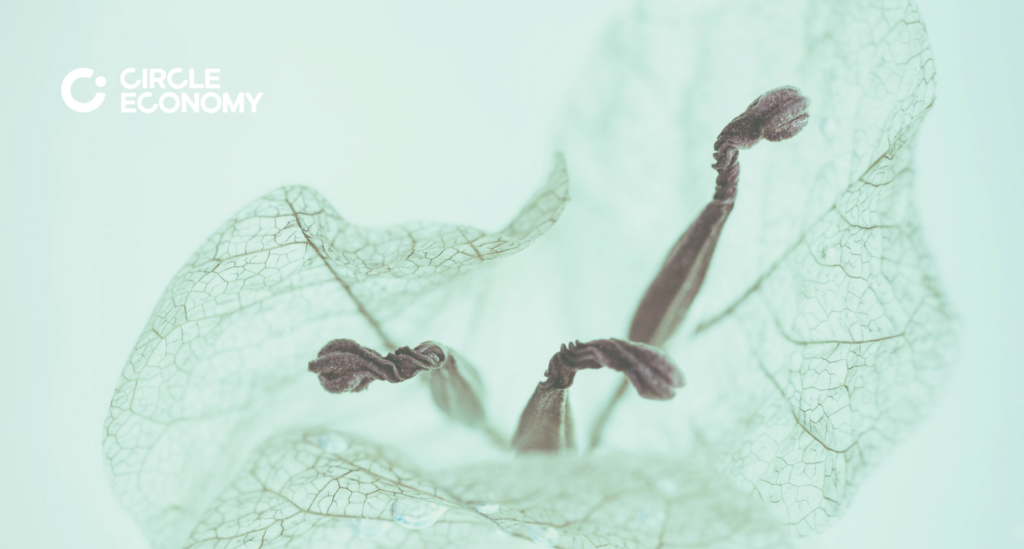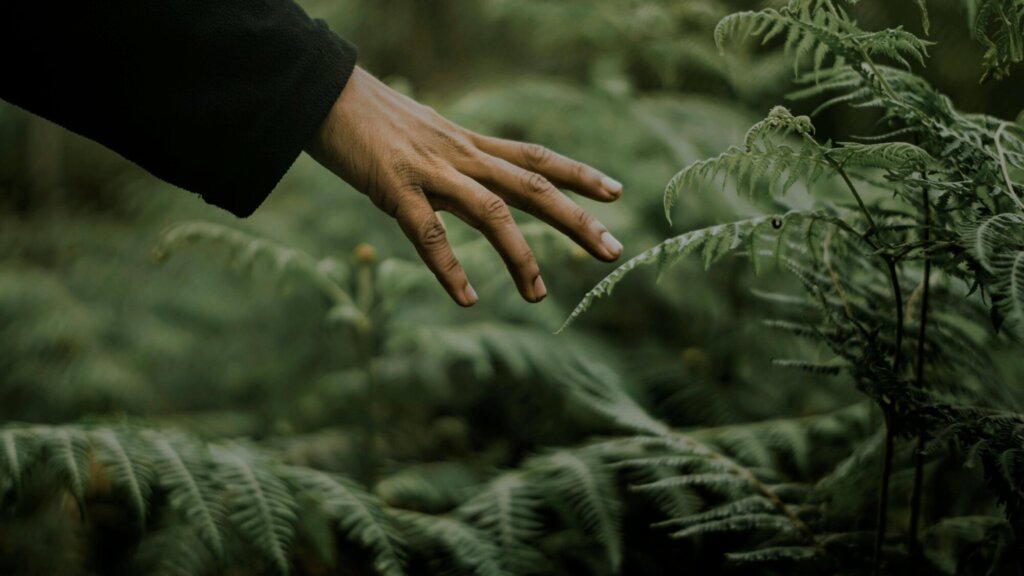We just had our Nature Retreat with the 2025 cohort: 10 nature-inspired startups, 18 participants, and I’m thinking about Paul Graham’s famous advice: do things that don’t scale. At its core, the message is that some of the most valuable work in the early stages of building, whether it’s a company, a community, or an idea, comes from the messy, hands-on, labor-intensive efforts that can’t easily be repeated, automated, or scaled. In a world obsessed with productivity and scale, it’s easy to overlook the slower work of observing, listening, learning, and growing with intention and authenticity.
During this 4-day retreat, the founders didn’t do what startup founders are “supposed” to do. They didn’t refine their product, chase customers, or polish investor decks. And as an accelerator, we didn’t do the usual accelerator things either, no rapid-fire mentorship sessions, no programming packed with panels or presentations. Instead, we did something resource-intensive, expensive, not easily repeatable, and requiring a unique combination of skills, care and craft. Hosting a retreat is hard. It takes months of preparation and is deeply, humanly intense.
But arguably, it’s the most important thing we do. And here’s why.
Grounding in nature, grounding in self.
Our retreat at The Uplands Center in the Catskills offered founders space to reconnect, with themselves, with each other, with nature, and with the living systems they are inspired by. Our team believes that grounding in nature helps ground a founder in their own purpose and resilience. Over four days, we immersed ourselves in forest bathing, hiked (even at night, under the stars!), practiced yoga, and journaled. Naturalist Chris Montero guided us in birdwatching, nature sketching, and “reading the land”, learning to interpret a landscape’s story through history, ecology and place.
These practices weren’t side activities. They were the heart of the experience: training a muscle for deep observation, interdependence, and humility in the face of complexity. It’s this orientation to nature that underpins biomimicry and can transform how these founders build their companies, products and team culture.
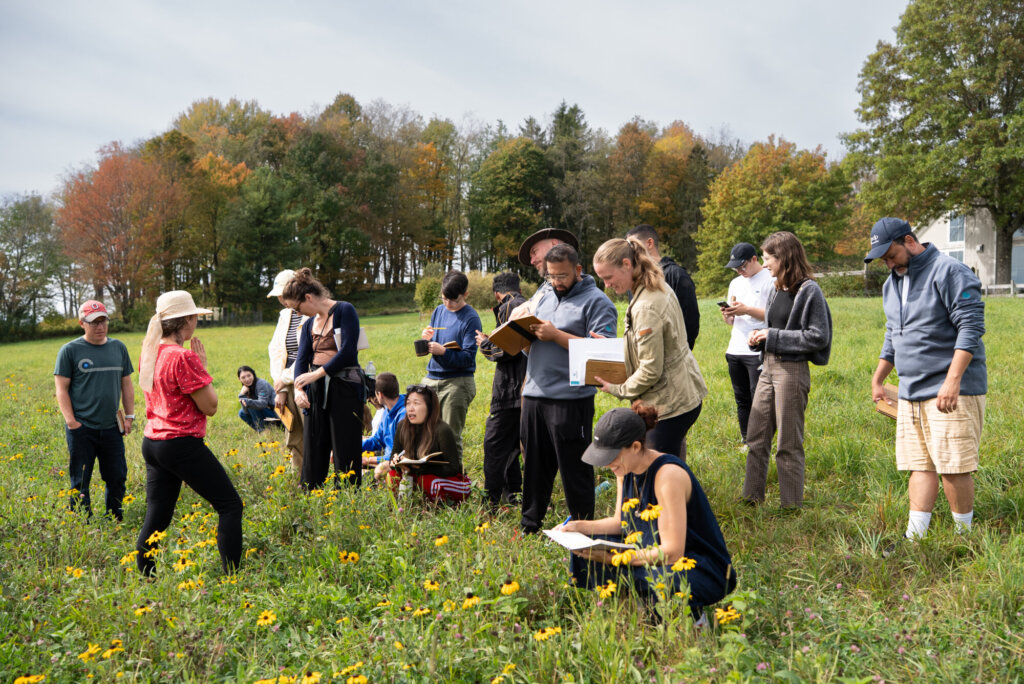
Building community, not just companies.
Another goal was to nurture trust and belonging within the cohort. Through team-building activities, shared meals, bonfire conversations, and lighthearted games, we created space for founders to drop their “founder front” and show up as whole people. One highlight was a tour of the lush permaculture garden, followed by a community cooking activity and a keynote from our Head of Programs, Jenélle Dowling, on the connections between community, nourishment, and biomimicry principles. She then posed a simple but profound question: “What is a food that means a lot to you? Where is it from, and how does it make you feel?” The circle that followed was an absolute hit, everyone contributed with a smile, recalling early memories. This “non-business conversation” resonated deeply and sparked follow-up conversations throughout the retreat.
The results of setting up the retreat space with these intentions were powerful: countless candid, no-BS conversations; generous offers of introductions and networks; sparks of cross-pollination for future collaborations; and reflections like that of David Csuka, scientist at Ecotune, who shared his aspiration to “approach his research the way Chris Montero approaches nature”, through childlike curiosity, awe, and wonder.
These moments of vulnerability and generosity laid a strong foundation for peer support that will carry through the six-month program and beyond. They also nourished the accelerator itself, our vision for the next five months of virtual programming and our own team learnings. For our Program Coordinator, Raven Rice, attending her first Ray of Hope Accelerator nature retreat, it was a powerful immersion into the fluid, trust-filled conversations with the startups.
As our program and portfolio grows, we are already witnessing the ripple effects: startups from previous cohorts collaborating, sharing resources, and expanding their collective impact.
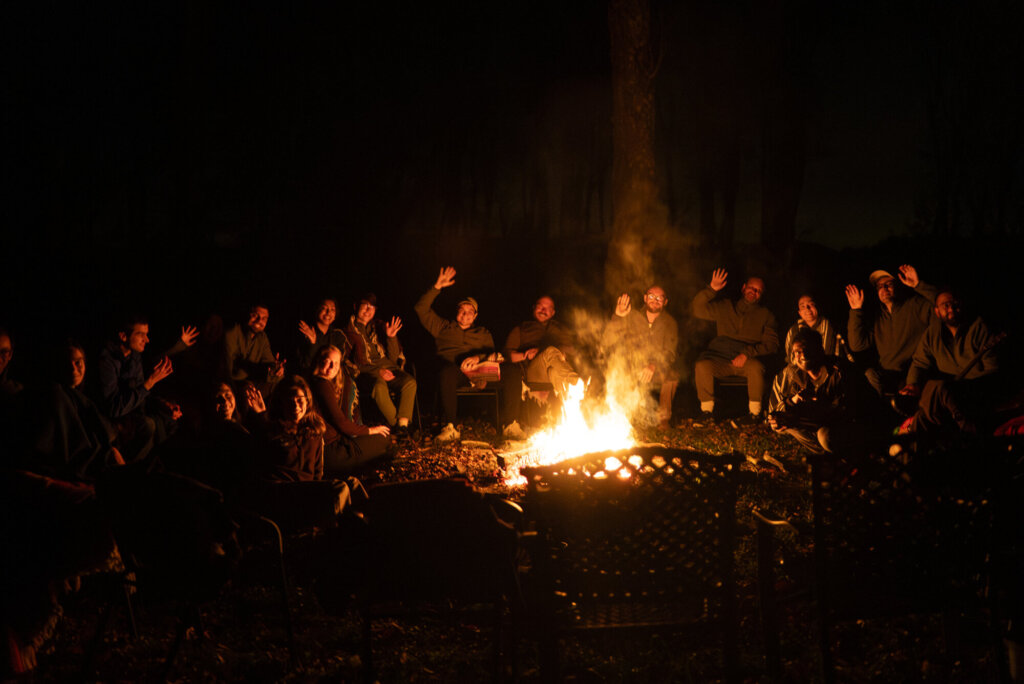
Translating nature’s wisdom into impact.
The retreat also marked the starting point of the cohort’s impact journey. In a Show & Tell style presentation, founders presented to the group their technologies and visions, opening the door to empathy, curiosity, and crossover conversations. This flowed into an Impact Mapping workshop led by our Innovation Director Sarah McInerney, where co-founders traced their technologies across supply chains and planetary boundaries, an interactive, collaborative process to see their ventures as part of broader ecological and social systems.
This wasn’t just an exercise. It was about equipping founders with a framework to make more regenerative decisions, grounded in Life’s Principles and systems thinking. It laid the foundation for the program’s upcoming “Impact Sprint”, part of our 6-month virtual programming.
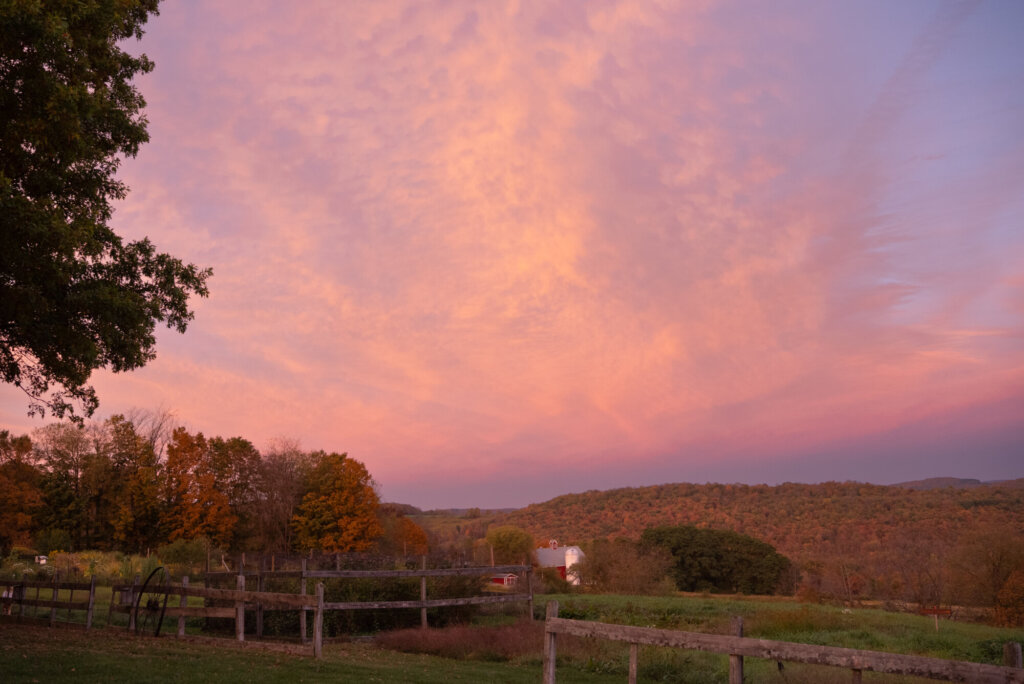
Integration and reflection.
We closed the retreat with space for integration: a World Café session to harvest insights, a reflective “Letter to Self,” and fireside sharing of “nuggets” to bring forward. Founders left re-aligned, with nature, with themselves, and with each other.
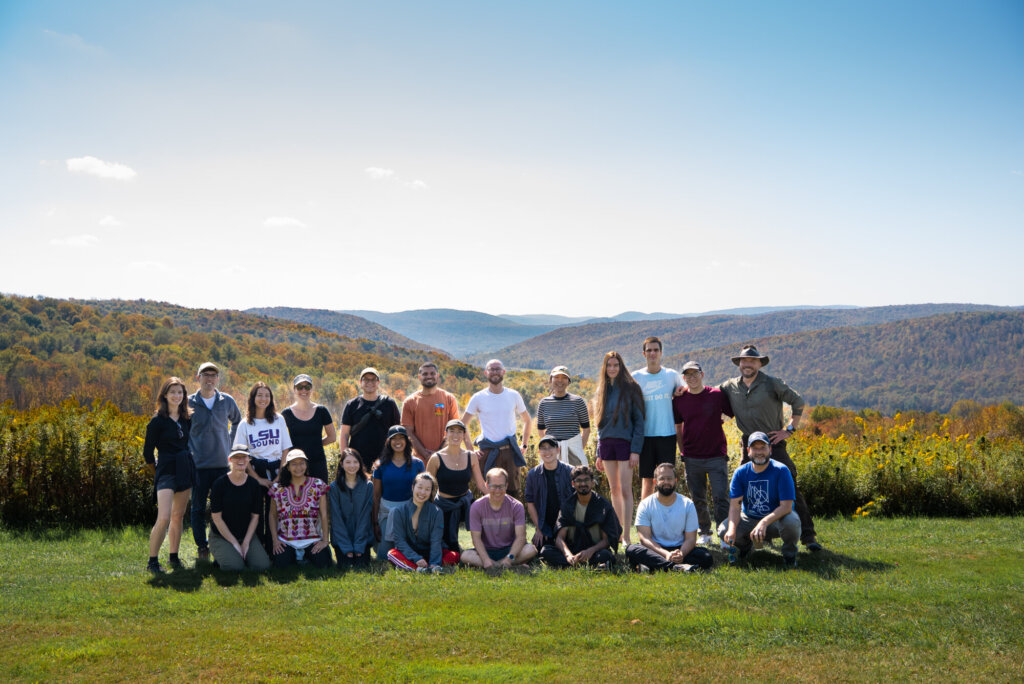
Why it matters.
At its core, the Nature Retreat reflects the philosophy of the Ray of Hope Accelerator: that reconnecting with nature and self is essential to shaping regenerative solutions and resilient leadership. By slowing down and creating space for deep listening, we help founders lead not just as entrepreneurs, but as stewards of a nature-positive future.
It doesn’t scale. It’s resource-intensive. It takes everything from logistical coordination to ecological literacy to emotional facilitation. But the impact, on founders, on their companies, and on our collective capacity to create conditions conducive to life, is immeasurable. That’s why we do it.
Maëlys Renaud is the Program Manager of the Ray of Hope Accelerator. She is a chemist, open-innovation enthusiast, and former Science Diplomat. Maëlys joined the Institute to identify, support and accelerate nature-inspired startups. Learn more about Maëlys and the rest of the team here.


